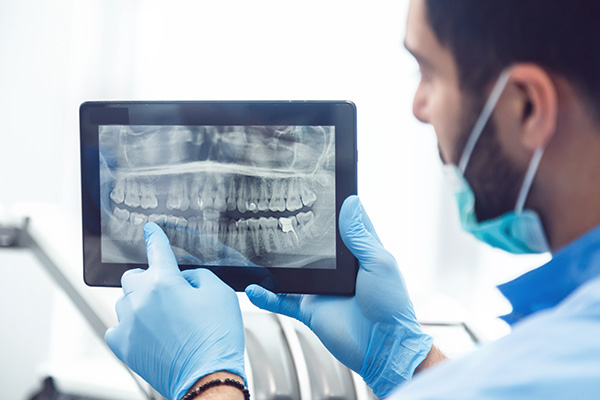 General dentistry allows people to seek dental treatments from someone who knows them well. It is important to give an accurate diagnosis. This is possible with the use of dental X-rays. If you want to know if dental X-rays are advisable in general dentistry, here are the details.
General dentistry allows people to seek dental treatments from someone who knows them well. It is important to give an accurate diagnosis. This is possible with the use of dental X-rays. If you want to know if dental X-rays are advisable in general dentistry, here are the details.
The definition and the need for it
Decades ago, a dental X-ray was a long and laborious process. Advances in general dentistry have brought the digital process of taking dental X-rays. Even so, the patient still will be a little uncomfortable during the X-ray. Despite the awkwardness, dental X-rays provide dentists complete information about the patient’s mouth. These X-rays show the details in the patient’s jaw placement, teeth, and roots. This helps the general dentist catch and treat any problem early.
Solid objects like bones and teeth absorb X-ray energy. These show as light-colored images. The energy passes through thinner objects. These are the cheeks and gums. They tend to appear as dark images. Any problem a general dentistry oral exam cannot detect can show in a dental X-ray.
Looking deeper than what the surface shows
High-energy radiation makes dental X-ray images possible. Low-density tissue in vital organs and skin cannot take in this type of radiation. The energy merely passes through these tissues. The harder materials in the body absorb this type of radiation. These are the teeth and bones. Digital or film sensors can measure the rate and degree of absorption.
The difference between diagnostic and therapeutic dental X-rays
There are different types of dental X-rays. The dental X-ray a patient gets at the clinic depends on the purpose of the appointment. A patient can get either a diagnostic or therapeutic dental X-ray. The dentist will determine which one will help the patient more.
A general dentistry checkup may involve a diagnostic X-ray. The dentist will need it to establish a custom-fit treatment plan for the patient. A root canal procedure will need a periapical diagnostic X-ray. With this, the dentist aims to take a complete image of the patient’s tooth. This involves taking photos from the crown to the root. The images will help the dentist create a comprehensive treatment plan.
Some general dentistry visits need therapeutic X-rays. This is the kind a patient gets during a teeth cleaning or oral examination. This type of dental X-ray gives the dentist a complete view of the patient’s gums and teeth. There could be some areas in need of further checking.
The frequency
A patient does not need a dental X-ray during every appointment. It is standard to get dental X-rays once every two or three years. More frequent dental X-rays are for patients who suffer from oral issues. It depends on what the general dentistry care provider decides.
A general dentistry practice knows when you need a dental X-ray
Dental X-rays may sound intimidating and time-consuming to some people. But with the latest technology, this procedure is now faster and more convenient. A dental X-ray happens in the general dentistry clinic. An appointment with your dentist will determine if and what kind of dental X-ray you must get.
Request an appointment or call Valley Family Dental Group at 562-450-1257 for an appointment in our Downey office.
Related Posts
Curious about what general dentistry professionals recommend for healthier gums? Read on to find out. Your gums support your teeth. If the gums and underlying jawbone are weakened, then teeth are vulnerable to becoming lost if left untreated for an extended amount of time. The good news is that you can have healthier gums through…
General dentistry focuses on preventative treatments, but it includes using dental cosmetics like veneers to restore or enhance the appearance of teeth. A veneer is a tooth-shaped restoration that is cemented to the front part of a tooth. It covers up any imperfections, damages, or deformities on that part of the tooth. Veneers started out…
General dentistry offers multiple ways to cure bleeding gums, with many of them being simple solutions. Bleeding gums should not be ignored; they could be caused by something as minor as brushing too aggressively or something as serious as chronic gum disease. A visit to a dentist is in order if your gums often bleed…
